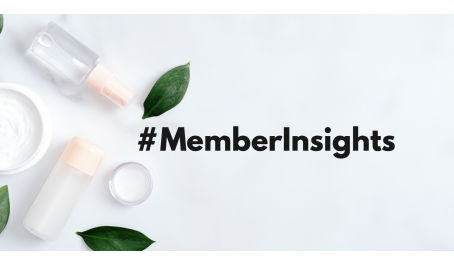- Membership
- The NY Chapter
- Our Career Services
- Committees
- National FACC Network
Luxury and Sustainable Development: What Do Customers Think?
Member news | December 03, 2020
Luxury sells dreams: this is its very definition.
Imagination, emotion and quality are the traditional values of this sector, carried by the product and its packaging.
So, when luxury decides to embrace a strategy of sustainable development, how do its consumers - the fans of a brand and of their perception of it - react?
What is their perception of virtuous luxury, of a sustainable development-focused product?
Social wearers, this new type of consumer
Just like the shift in morals and consumption habits for everyday and information products, luxury is being impacted more and more by environmental awareness.
A new consumer profile is at the initiative of this movement: social wearers. Spurred by the Millennial generation, this category of customers is eager for their favourite brands to be fully committed to ethics and the environment in the long term.
As luxury is one of the world’s most pollutant industries and uses rare resources, it must now change its habits and set an example given the explosion in the number of these social wearers. Their market share, which in 2017 represented no less than 22 million consumers, has doubled in five years (according to a study led by Boston Consulting Group in 2016). 58% of Chinese consumers even claim to be ready to pay more for ethical brands (according to a study by Mintel China, carried out in 2017).
These consumers have new expectations: complete transparency in terms of price, quality and the origin of the products. The movement is under way, luxury must conform to become blameless in the eyes of consumers.
Virtuous luxury: the eco-revolution is in motion!
Brands must seize the opportunity they have to improve their image and boost their reputations by making a change in favour of the environment, through a production process focused on sustainable development. That’s because they face new, emerging players, smaller but stronger in terms of their green reputation.
Take the case of JEL (Jewellery Ethical Luxury), the top French brand for ethical jewellery designed using environmentally-friendly metals and minerals. Or even Tata Harper, which on its Vermont farm produces premium, natural, green cosmetics. On the fashion side, Zeit makes clothing using fabrics coming at 80% from fabric offcuts from the major fashion houses, and Les Récupérables re-uses textiles as part of an upcycling and circular economy scheme, producing no new waste. The craze that they are inspiring is in turn leading major brands to align themselves with their approach.
Similarly, new alternatives are appearing, like luxury rentals, or pre-owned luxury. Showing a certain detachment from possessing a new product compared to a more ethical purchase, consumers are once again demonstrating to the luxury sector their desire for green products, associated with a lasting and sincere commitment to sustainable development.
Packaging as a tool to differentiate luxury products
Packaging is an integral part of the DNA of brands, from fashion to gastronomy, jewellery to leather. It must therefore carry and immediately reflect the values, commitment and image of a brand.
So then, when a brand is launched using a sustainable development-based approach, packaging must follow by proving right away its ethical and environmentally-friendly character.
Several solutions exist such as sustainable packaging or eco-packaging. Ecological, natural, recyclable and even compostable products, vegetable-based ink, the absence of adhesive and solvent... These new green materials are available to luxury-packaging companies for an ethical and environmentally-friendly end product, which corresponds to new consumer expectations.
Written by:
Charlotte Mattei
Key Account Manager - Parcome
FACC member contact:
Romain Lacombe
CEO
Sources
Article - Le futur du luxe : s’engager absolument
Étude du Boston Consulting Group, 2016
Étude Mintel China, 2017
Article - Bien-être animal, technologies vertes… Le luxe se donne bonne conscience


